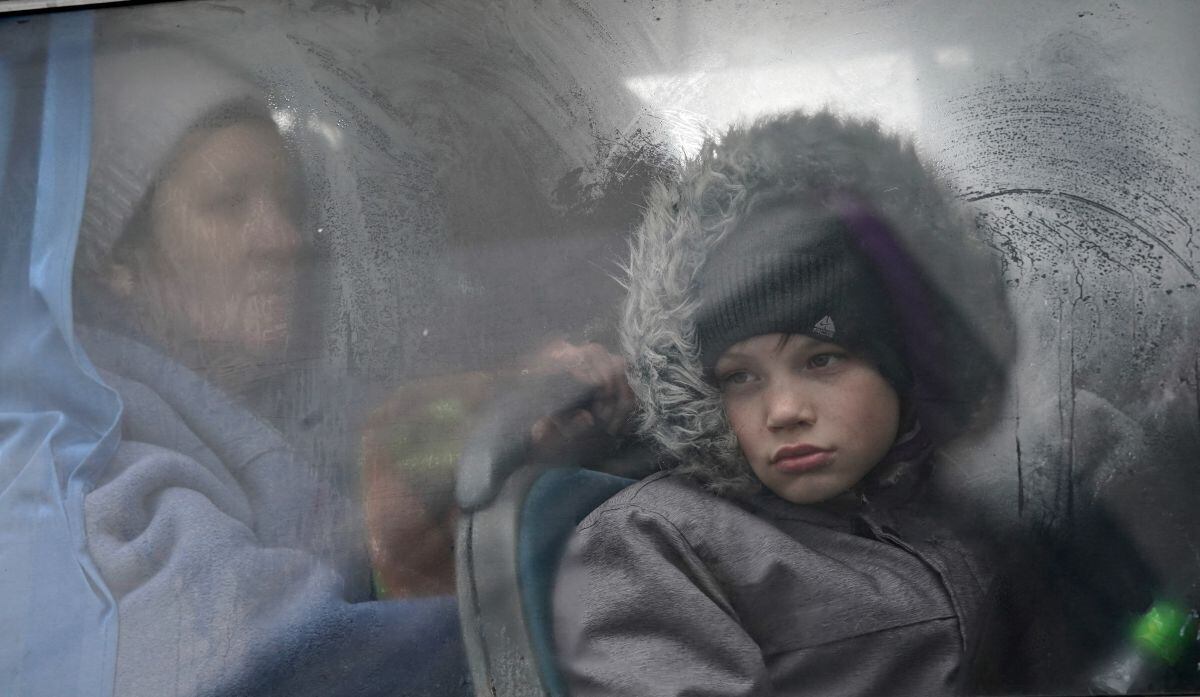
Information “reliable” about 2,145 minors missing from Ukraine in special circumstances “decreases over time”which urges “collect genetic data” of relatives to keep his trail alive, in the face of the efforts of Moscow of “indoctrinate them” so that “forget” its roots, several international experts denounced this Wednesday.
At a meeting organized today in The Hague by the International Commission on Missing Persons (ICMP), foreign and Ukrainian experts, as well as representatives of the international community, discussed the need to improve “Ukraine’s strategic vision to locate tens of thousands of missing people, including illegally deported children.”
The Unified Registry of Persons Missing in Special Circumstances currently includes 2,145 individuals who were under 18 years of age at the time of their disappearance.
The illegal deportation of children is a war crime under the Rome Statute, the founding treaty of the International Criminal Court (ICC), and was the reason for the two arrest warrants issued in March last year by this court against the Russian president. Vladimir Putin, and Maria Lvova-Belova, presidential commissioner for children’s rights in Russia, both accused of being “alleged perpetrators” of the forced transfer of children to Russian territory.
Queen Noor of Jordan, commissioner of the ICMP since 2001, stressed that there is consensus on the role “crucial” that would play a “central database” by allowing the collection of “abundant information” about missing people that different agencies have collected.
Likewise, he highlighted that the consensus among those working on this issue regardingand “the need for constant communication with the families of the missing” and of “an outreach campaign to collect genetic data from tens of thousands of family members” residing inside and outside Ukraine.
Artur Dobroserdov, Commissioner in Ukraine for Missing Persons, warned that, although the Russian invasion began in 2022, “The aggression began in 2014, and as a consequence there are many people who were murdered, taken prisoner, or have disappeared.”
“Now we understand the magnitude of the problem. These children are our future. We need to do everything we can to bring them back. We understand that, with the passage of time, many things change, including the names and surnames of these children, because (Russia) “He does everything possible to make them forget their roots and their families.”Dobroserdov warned.
Furthermore, he pointed out that “reliable information on missing persons decreases over time” forks “crucial” that data is recorded and stored appropriately because “In the future, primary sources may no longer exist or may be distorted, not reflecting the true situation.”
In this sense, Kateryna Rashevska, legal expert at the Regional Center for Human Rights, warned that illegal deportation “never occurs in isolation from other violations of children’s rights committed during conflict”so, he assured, once under Russian control, these children were “Russian nationality is imposed on them, a formal and informal educational system with elements of political indoctrination and militarization.”
According to their data, Ukrainian children were transferred to 58 cities and towns in Russia, to Belarus and South Ossetia, and to occupied Ukrainian territory.
In this sense, he recalled that this practice “viola” various rights of the child, such as the right to use their own identity and national language, to education – given the context of indoctrination – and to the family – by removing the minor from their family context and not allowing them to be recovered from their parents Russian adoptives.
The technology available can help keep track of these missing people both in the short term and for decades.
Sara Huston, co-founder of DNA Bridge, an organization that works on family reunification through the use of DNA, said that, used in collaboration with civil society, “The infrastructure that helps families who have suffered the loss of loved ones can be adapted to reunite living family members,” he pointed.
Huston urged a global DNA database system to aid in general family reunifications. In the specific case of Ukraine, Knut Vollebaek, president of the ICMP, urged improvements in several points to maintain a DNA sampling process and, among other things, urged “help develop the technical capacity of Ukrainian forensic and investigative personnel, support and enhance meaningful participation of civil society.”
“Increase public awareness of the problem of missing persons and the steps being taken to address it” It is also, according to Vollebaek, another necessity.
It may interest you
- The year 2023 was the year of the most armed conflicts in the world since 1946, according to a study
- Russia and Ukraine exchange prisoners of war for the first time in months
- In the mountains of Romania, Ukrainians risk their lives to flee the war
Source: Gestion
Ricardo is a renowned author and journalist, known for his exceptional writing on top-news stories. He currently works as a writer at the 247 News Agency, where he is known for his ability to deliver breaking news and insightful analysis on the most pressing issues of the day.












